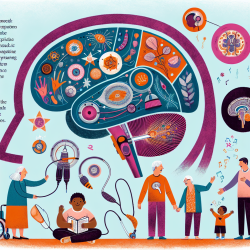Introduction
The COVID-19 pandemic has underscored the critical role of Community Health Workers (CHWs) in addressing health disparities, especially among communities of color and structurally vulnerable populations. The research article titled "Community Engagement Alliance (CEAL) Against COVID-19 Disparities: Academic-community partnership to support workforce capacity building among Arizona community health workers" highlights the importance of CHWs in pandemic response and offers insights into enhancing workforce capacity. This blog post aims to help practitioners improve their skills by implementing the outcomes of this research.
Key Findings and Implications for Practitioners
The study conducted by Jiménez et al. (2023) involved focus groups with CHWs across Arizona to understand community concerns and needs during the pandemic. The findings revealed several key areas where practitioners can enhance their skills:
- Culturally Relevant Communication: CHWs have been instrumental in developing culturally and linguistically appropriate health education materials. Practitioners can benefit from understanding the cultural nuances and language preferences of their communities to improve communication and engagement.
- Addressing Misinformation: The rapid spread of misinformation during the pandemic has posed significant challenges. CHWs have been effective in correcting myths and providing accurate information. Practitioners should prioritize staying informed about the latest public health guidelines and develop strategies to address misinformation in their practice.
- Mental Health Support: The pandemic has highlighted the need for mental health resources. CHWs identified mental health as a priority training area, emphasizing the importance of supporting clients' mental well-being. Practitioners should seek training in mental health support to better serve their clients.
- Chronic Disease Management: Managing chronic diseases during the pandemic has been challenging for many clients. CHWs recommended integrating chronic disease management with COVID-19 prevention efforts. Practitioners should consider incorporating chronic disease management strategies into their practice to support long-term health outcomes.
Encouraging Further Research and Collaboration
The research underscores the value of academic-community partnerships in enhancing CHW capacity and addressing public health challenges. Practitioners are encouraged to engage in collaborative research efforts to better understand community needs and develop effective interventions. By partnering with CHWs and other community organizations, practitioners can contribute to a more equitable and effective public health response.
Conclusion
As the pandemic continues to evolve, the role of CHWs remains crucial in supporting communities and addressing health disparities. Practitioners can enhance their skills by implementing the research findings and engaging in ongoing education and collaboration. By doing so, they can contribute to improved health outcomes for their clients and communities.
To read the original research paper, please follow this link: Community Engagement Alliance (CEAL) Against COVID-19 Disparities: Academic-community partnership to support workforce capacity building among Arizona community health workers.










